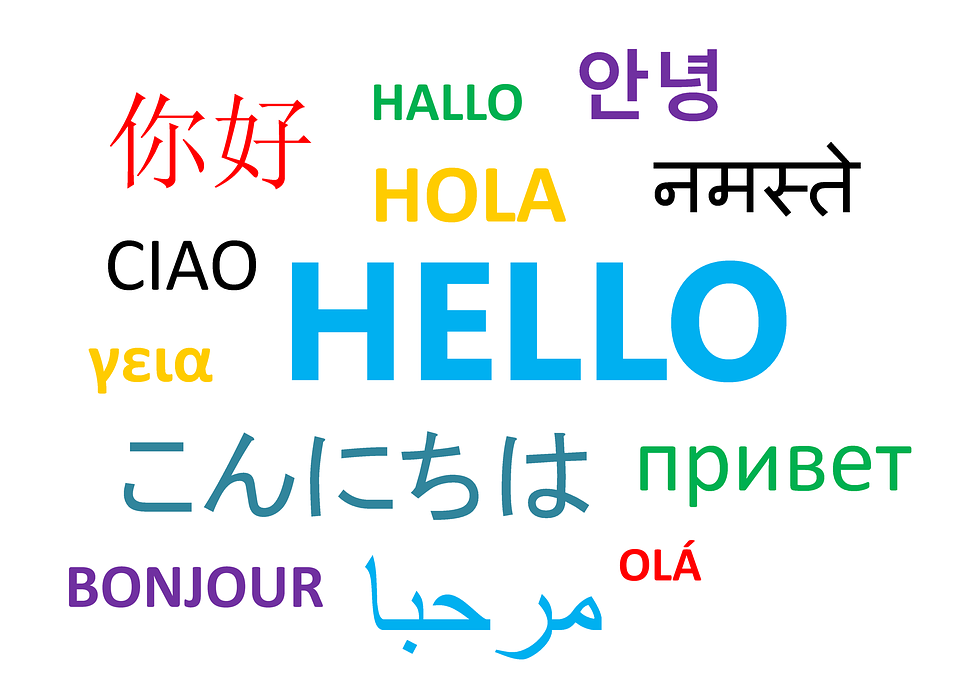Watch your language! 5 reasons why we think learning a language is amazing

- By eSwapp
Why learn another language?
When you think about learning a new language you might experience flashbacks to your secondary school French teacher asking you to conjugate the verb ‘to be’ and the ensuing feelings of dread. You might fondly remember the stories of “Karl und Steffi” ordering “Brot” in the “Bäckerei”. Or you might have forgotten your earlier forays into the exciting world of languages completely!
For many of us, learning a new language can be a daunting prospect. There is no denying that mastering a foreign language takes a lot of time and dedication. Grammar and vocabulary are just the starting point. Once you have got a handle of these, there is a wealth of unique cultural references, phrases and idioms that are part of the language’s everyday use. However, that is all part of the fun and doesn’t mean that learning even a small amount of a foreign language is without value.
We have assembled this list of 5 reasons why we think you should give learning a foreign language another go.
1. Languages give you a window into new cultures
From the day we are born, we are completely immersed in language. From our parents’ first words to us as they hold us in their arms, we are creatures that cannot exist without linguistic contact. As we grow up and learn to speak for ourselves, and then to read and write, we become part of a tradition of language that stretches back through the ages. Of course, this is true for all human beings, each of whom speak one or more of the several thousand languages that still exist today. Proficiency in your mother-tongue gives you access to your own culture, but it won’t get you very far if you would like to broaden your horizon and extend your cultural grasp beyond the confines of your homeland.
Of course, translations of texts are available and there is more to a culture than just its language. But, neglecting to learn the language itself guarantees that you will miss out on a trove of nuances, jokes and concepts that simply cannot be properly expressed in English. By learning a new language, you’ll be able to engage with a foreign culture in a deeper and more meaningful way, understanding the thoughts and ideas of other people in the way they were originally expressed.
2. They give you the opportunity to connect with people from all over the world in a more meaningful way
Although the world is becoming increasingly anglophone, there are only 379 million native English speakers in the world. That means that around 95% of people in the world did not grow up speaking English. As the stereotypical linguistic arrogance of native English speakers demonstrates, people like to speak in their mother tongue. By learning new languages, you develop the ability to speak to other people in their native language, thereby expanding your chances of connecting with new people in a more meaningful way.
There are also worthwhile career benefits to speaking other languages. Though much of international business is conducted in English, learning a language gives you the ability to carry out domestic work in a foreign country. Living and working abroad can be a life-changing experience and is something that is often only possible if you speak the native language of the country.
3. Allows you to look at your own language from a new perspective
Our language is the main tool we use to understand and share the world we live in. It’s easy for us to go through life speaking only our native language, under the false assumption that the world appears to everyone in the same way. However, it’s important to remember that the our language is just one of thousands that are currently spoken, and one of a myriad of languages that are no longer spoken. English is just one system of understanding the world, which works in a specific and unique way. This specific and unique system could just as easily be different, as it is in other languages. Take, for example, an English noun (a word for a person, place or thing). It is impossible to express a noun in English without also expressing whether there is just one of that noun (singular) or many (plural). However, that is not the case in other languages, for example Japanese, Korean, Malay, Indonesian and Chinese languages. These languages can express a noun without also telling you the number of that noun. Think about how that might influence the way you conceive of ideas…
When we learn another language, these differences become clear to us. Speaking a foreign language makes us aware of the way our own language functions, rather than simply accepting it as the default way to view the world and form ideas. This is why speaking a foreign language can also make you more adept at speaking your native tongue. It gives you the skills to dismantle and analyse your own language.
4. They can improve your health
When we are speaking in a foreign language, our brains are forced to work much harder to recall words, phrases and grammar in real time. This trains our brains to become sharper and helps us to practise recalling words and ideas from our long term memories. As a result, multilingual people tend to have improved memories, critical thinking and problem-solving skills. You can think of language learning as an excellent form of ‘brain training’ that improves your cognitive health.
Language learning can even contribute to improved physical health! There have been several studies into the benefits of learning languages with regard to neurodegenerative diseases later in life. Speakers of several languages have lower rates of dementia, with bilingual people showing symptoms of dementia around 4.5 to 5 years later than people who speak just one language.
5. It’s enjoyable!
The most important reason to learn a new language is that it’s really fun! Languages are strange and wonderful, filled with intrigue and excitement. A language is the collective store of a people’s stories, humour, tragedy, beliefs and so much more. They are handed down to us from our ancestors with the traces of the generations of speakers who have come before us, and we are free to experiment with them and create new linguistic inventions for those who come after us. Tapping into this lineage of creativity and invention is so rewarding and fun — being able to do the same with several languages simply multiplies the enjoyment.
On a more practical level, the process of learning a language gives you the opportunity to meet new people and form meaningful connections. For example, learning a language through a peer-to-peer learning platform, such as eSwapp ;), gives you the opportunity to learn from somebody on a one-to-one basis, and teach them something in return. This process of mutual learning is a unique way of forming relationships and, coupled with the inherent fun of learning a language, makes for a really great experience!


